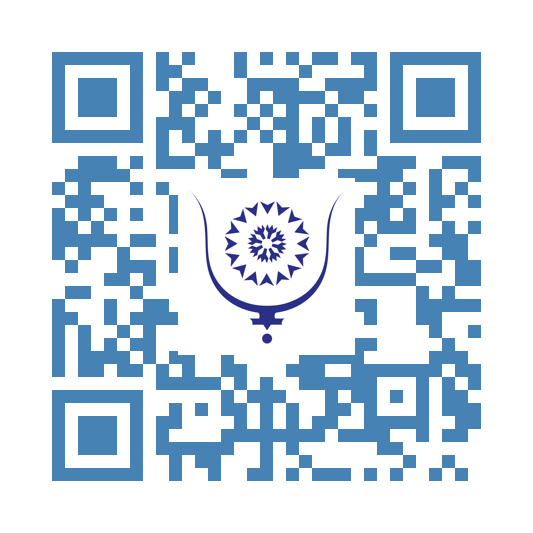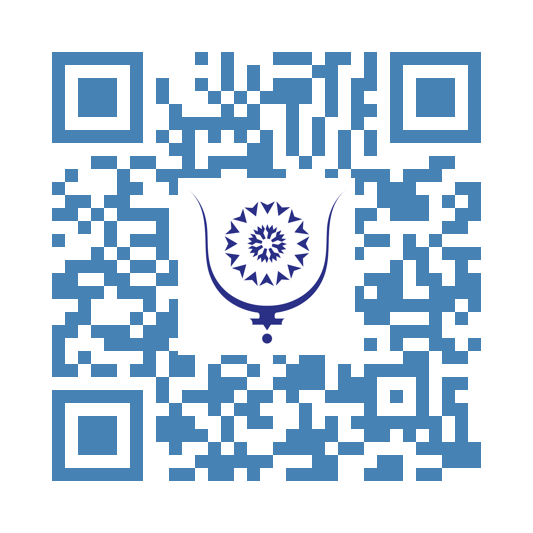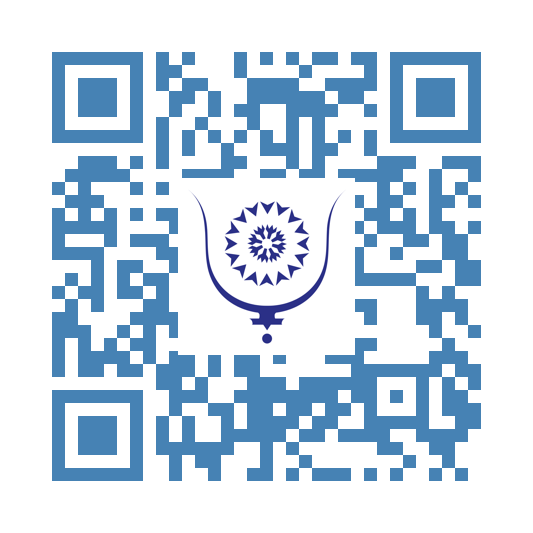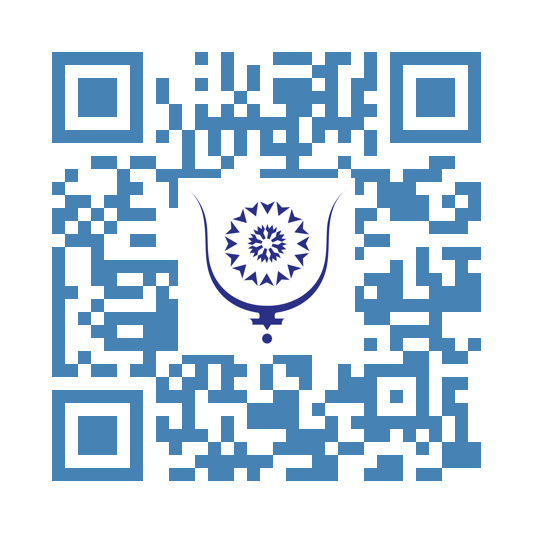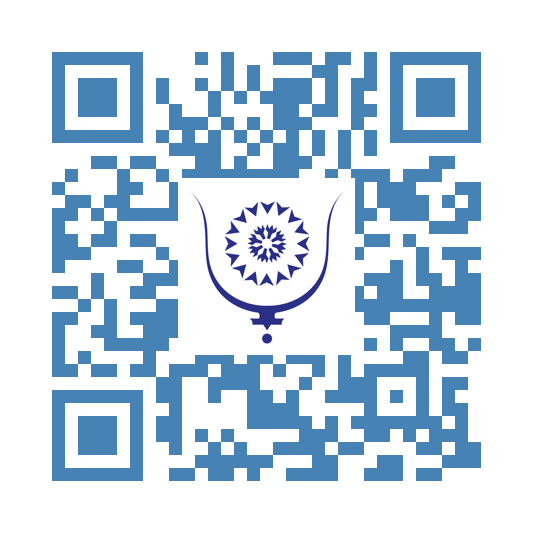A Last Chance: The King of Morocco’s Message to Algeria on the Sahara Issue...
112
His Majesty the King's speech, delivered on July 28, 2025, on the occasion of the Throne Day, carries particular significance in a diplomatic context that is admittedly new but has been developing for a long time. The recent circumstances are marked by the tour of Massad Boulos, father of one of Donald Trump’s sons-in-law and special envoy of the President to the region. These circumstances are further highlighted by the remarks before the U.S. Congress of the newly appointed ambassador to Rabat, who is very close to the President. Richard Duke Buchan III did not mince words: the Sahara is Moroccan. He knows the region well, having been ambassador to Spain.
This situation says a lot about the current dynamics of the conflict over the Moroccan Sahara and about Algeria’s troubled stance on this issue.
In his widely followed speech, eagerly awaited and well-reported by Moroccans due to the rarity of His Majesty's words, the King of Morocco emphasizes the repeated "outstretched hand" offered by Rabat. He stresses the brotherhood between the Moroccan and Algerian peoples while underlining the constancy of his position. The goal is to exert moral and diplomatic weight, presenting an image of responsibility and openness while implicitly denouncing Algerian obstruction. This rhetoric effectively offers a way out for Algeria, which is becoming isolated on the international stage. Addressing the Algerian people, His Majesty essentially calls them to witness.
By explicitly highlighting growing support for his proposal, notably recent backing by the United Kingdom and Portugal, His Majesty sends a message with a dual meaning:
*- Morocco enjoys increasing support for its autonomy proposal, which legitimizes its position broadly supported by the West, the Arab world, the majority of African countries, and others;
- At the same time, Algeria is becoming increasingly diplomatically isolated, as confirmed by the awkward silence regarding the Sahara issue in official statements, especially after the American special envoy’s visit.*
The speech disregards the new realities and moves directly to a constructive proposal for dialogue within a fraternal framework.
On the other side, the absence of any mention of Western Sahara in Algerian official statements following Boulos’s meeting with President Tebboune is particularly telling. Added to this is the recent statement by the Lebanese president, made in the presence of Tebboune and his close entourage in the heart of Algerian power. He thanked the Kingdoms of Saudi Arabia and Morocco for their involvement in resolving the political crisis in his country, without a word about the Sahara. The tone of Joseph Aoun’s voice is grating to the aligned guards. Faces are tense.
This reflects either a political unwillingness or inability of Algeria to publicly address this subject under international pressure, except in the presence of marginal countries. There is also an embarrassment or divergence between the regional political reality and Algerian diplomatic communication. The fact that the American special envoy continues his tour, with a clear mission, according to Trump, "to end this artificial conflict," demonstrates international determination to promote a resolution favoring Morocco’s proposal. At least, this can be inferred from Trump’s letter to His Majesty on the occasion of the Throne Day.
Are we nearing a scenario similar to the resolution of the conflict between Rwanda and the DRC?
His Majesty the King’s renewed call can be seen as a last resort, a final offer of appeasement: an opportunity for Algeria to step down from its stubborn stance without losing face, relying on a credible and internationally accepted proposal. Morocco has shown both patience and firmness. The next step now depends on Algeria’s choice.
Unfortunately, instead of an official response, the Algerian authorities have communicated indirectly through media channels, some of whose outrageous remarks are perplexing. They even claim that the King of Morocco eventually threw in the towel in the face of Algeria’s intransigence. The lifeline extended by the King to a languishing regime is perceived as a mere sponge by the very one who needs it.
A pity.
Algeria now faces its contradictions, confronted with a complex constraint. Continuing to support the Polisario means further entrenchment and a risky isolation, both regionally and internationally, with an even greater threat of political weakening internally. The country suffers from an unprecedented economic crisis, limiting, due to a lack of foreign currency, imports that are vital to the economy and the people. Recurring electricity and especially water cuts in several regions add to the difficulties. The dilapidated state of cities is perplexing. Tebboune’s reassuring talks do not lessen the bitterness of the population.
Heeding Morocco’s call would allow Algeria to reposition itself politically without losing face; explicitly refusing dialogue is increasingly costly and diplomatically unsustainable. Algeria risks sinking into a crisis that benefits neither its international credibility nor regional stability, and even less its domestic stability.
The involvement of the American special envoy in the region, the discretion regarding the Sahara case in Algerian communiqués, and the King of Morocco’s speech all point to the same reality: the status quo can no longer continue.
The generous and wise royal appeal is indeed a last chance offered to Algeria to escape the deadlock, avoid international political embarrassment, and preserve some dignity for its leaders.
By opting for dialogue, Algiers would also save face internally, with a population that has been fed a hatred of the Kingdom for five decades and sacrificed for a cause that brought only misery and disappointment.
What does the population feel when it sees mercenaries occupying part of its territory, parading at its expense, pretending to lead a bogus “republic”?
The international context, with major actors clearly engaged for a pragmatic resolution, reduces Algeria’s room for maneuver.
Will Algeria seize this opportunity to redirect its policy, or will it continue a costly and potentially harmful strategy?
In that case, there will be only one loser: Algeria.
The regional and international momentum is accelerating every day in favor of the Moroccan proposal. This is the meaning , and only the meaning, that should be given to the Throne Day speech of the King of Morocco.
Share:
A Last Chance: The King of Morocco’s Message to Algeria on the Sahara Issue...
copy:
https://bluwr.com/p/299713121
Understanding.
288
The food had just arrived, a bucket of figs, submerged in cool water to shield them from the heat, when the boy entered the narrow street. Confused and burning with anger, he broke the peace that had settled over the biggest ape.
“Come here,” said the biggest ape, voice low and firm.
He reached into the water and extended the boy a fig.
“Take this.”
“I don't understand...” the boy muttered, lowering himself onto the carpet. Grief and rage glowing through his eyes.
“You can have more,” answered the biggest ape.
A long pause followed. The ape measured every words carefully as the boy's tears drew sharp lines across his face.
“Listen,” he said at last.
“To understand life, you must see death.
To understand light, you must see darkness. To understand justice, you must see injustice.”
The biggest ape then ran a single finger across the still surface of the water, the motion briefly parting it into two.
They ate in silence.
In the distance, a ship was leaving the harbor, its sails taut with wind, its trail splitting the ocean.
*Such is the nature of understanding: fleeting borders in the mind of God.*
Share:
Understanding.
copy:
https://bluwr.com/p/297531386
What’s new in Bluwr version 1.4?
307
Bluwr keeps evolving to enhance your reading, sharing, and publishing experience. Here's what version 1.4 brings:
==**Four Major New Features to Discover**==
__1– Series: Organize Your Articles into Collections__
Do you publish regularly around the same topic? The new Series feature lets you group your articles into thematic, coherent collections. Whether it's a documentary project, a serialized fiction, or a journal, you can now offer your readers a structured and fluid experience.
__2– Two New Reading Themes__
Bluwr now includes two new visual modes, alongside the existing Mediterranean Sea (default) and Vintage Newspaper (classic printed-paper feel):
Comfort: designed to reduce blue light exposure while remaining readable even under bright daylight.
Night Mode: perfect for reading in the dark without disturbing others nearby.
You can switch between themes any time from your profile settings.
__3– Persistent Login Across Devices__
The login bug has been fixed. Your session will now remain active—even when switching browsers or devices. That means you can now use Bluwr on your phone just like an app, without needing to log in every time.
__4– General Improvements and Fixes__
Beyond these visible updates, this version also includes interface and usability improvements for a smoother, more intuitive navigation experience.
Try out the new features today. The Bluwr team continues to refine the platform—version after version.
Share:
What’s new in Bluwr version 1.4?
copy:
https://bluwr.com/p/297235456
5 things you can do with Bluwr's new Sharing QR Codes
308
What are Bluwr Sharing QR Codes?
Bluwr Sharing QR Codes are quick-access codes generated when you click the share icon on any article or the information [i] icon on a user profile within Bluwr. When scanned, these QR codes instantly direct your device to the respective article or user profile—removing all barriers and making sharing as smooth and immediate as possible.
==**Five Practical Uses for Bluwr Sharing QR Codes**==
__1-Effortless Article Sharing__
Reading something a friend would love? Instead of copying links or searching for them in messaging apps, just have your friend scan the article’s QR code right off your screen. They’ll have instant access to the content, wherever you are—no email or messaging apps required.
__2-Personal Branding Tool__
Elevate your networking: allow potential clients, recruiters, or collaborators to scan your profile's QR code and immediately see your credentials and expertise. You can even display the code on business cards or signage in your office, or print a dedicated QR code linking to an article that highlights your experience and services.
__3-Enhance Presentations and Posters__
Boost engagement at events or talks by displaying a QR code that links to your speaker profile, more of your writing, or supporting materials. Attendees interested in your work can scan to access detailed bios, summaries, or extended resources—all with a single scan.
__4-Streamline Conferences and Events__
Organizers can reduce printing costs and simplify information access by distributing schedules, speaker bios, and session abstracts as QR codes on programs, posters, or badges. For example, a session listing might feature the speaker’s name, topic, and a QR code that links to their biography and full session details, putting comprehensive event info at every attendee’s fingertips.
__5-Smarter Book Sample Distribution__
Publishers and indie authors can host free book samples on Bluwr, leveraging its strong online presence. Instead of printing numerous paper copies, just print QR codes that link directly to these samples. This approach dramatically reduces costs and makes it effortless for readers to explore multiple works—expanding reach while saving resources.
Share:
5 things you can do with Bluwr's new Sharing QR Codes
copy:
https://bluwr.com/p/297214693
The Golden Dawn
427
It is impossible to discuss about magick without mentioning The Hermetic Order of the Golden Dawn. It was founded in the late 19th century and stands as one of the most influential occult societies in modern history. Emerging during a period of intense fascination with mysticism, spiritualism, and ancient wisdom, the Golden Dawn synthesized a wide range of esoteric traditions—Hermeticism, Kabbalah, alchemy, astrology, Tarot, Rosicrucianism, and Enochian magic—into a structured, initiatory system. Its teachings and rituals laid the foundation for much of today’s ceremonial magic, influencing major occult figures such as Aleister Crowley (1875-1947), Dion Fortune (1890-1946), Israel Regardie (1907-1985), and even elements of Wicca and New Age spirituality.
The Order was formally established in 1888 in London by three Freemasons—William Wynn Westcott (1848-1925), Samuel Liddell MacGregor Mathers (1854-1918), and William Robert Woodman (1828-1891)—who claimed to have received authorization to form the group from mysterious German Adepts through the discovery of a cipher manuscript. This document allegedly contained the outlines of a magical order structure and provided the inspiration for the Outer Order of the Golden Dawn, which focused on ceremonial ritual, magical symbolism, and spiritual transformation through the Tree of Life in the Jewish Kabbalistic tradition.
The Golden Dawn was hierarchical and initiatory, with members progressing through a series of grades based on the Qabalistic Tree of Life, each corresponding to deeper levels of metaphysical understanding. The Outer Order (or First Order) focused on theoretical knowledge—Hermetic philosophy, astrological correspondences, geomancy, and the use of symbols, especially those from Egyptian and classical sources. Students were trained in ritual magic, visualization, and the manipulation of elemental and planetary energies.
The Second Order, known as the Rosae Rubeae et Aureae Crucis (RR et AC), was an inner circle reserved for initiates who had demonstrated proficiency and inner development. Here, the emphasis shifted from theory to practical and ceremonial magic, including advanced work in scrying, spirit evocation, Enochian magic, and astral projection. Members of the Second Order were tasked with performing complex rites, often involving magical tools such as wands, swords, pentacles, robes, and the use of consecrated temples.
One of the Order’s most innovative features was its integration of diverse traditions into a coherent symbolic and ritual framework. For example, the Enochian system—derived from the angelic communications of John Dee and Edward Kelley in the 16th century—was systematized and used in conjunction with Kabbalistic and astrological symbolism. Tarot cards were not only used for divination but also mapped onto the Tree of Life and the Hebrew alphabet, giving them philosophical depth. The Golden Dawn also refined techniques of pathworking, where initiates would meditate upon the paths of the Tree of Life to achieve spiritual insight and astral exploration.
Despite its achievements, the Golden Dawn was plagued by internal disputes and power struggles, particularly between MacGregor Mathers and other senior members such as Aleister Crowley and A.E. Waite (1857-1942). By the early 20th century, the original Order had fragmented into various offshoots. Yet these splinter groups—such as the Stella Matutina, Alpha et Omega, and later Builders of the Adytum (B.O.T.A.)—continued the legacy, adapting Golden Dawn teachings for new generations.
In the 1930s, Israel Regardie, a former initiate, published many of the Golden Dawn’s rituals and teachings in *The Golden Dawn: A Complete System of Magic*, ensuring the Order’s survival and revitalization. His work preserved and democratized the system, bringing its methods to solitary practitioners and small esoteric groups around the world.
Today, the Golden Dawn’s influence is nearly universal in Western esoteric and magical traditions. From Thelema to Chaos Magic, Wicca, and modern Hermeticism, echoes of its symbolism, ritual structure, and magical philosophy remain foundational. Its emphasis on disciplined self-transformation through knowledge and will continues to resonate with seekers pursuing spiritual development beyond dogma.
In summary, the Hermetic Order of the Golden Dawn was not merely a secret society—it was a philosophical and magical renaissance, seeking to awaken the divine potential within each individual through a synthesis of ancient wisdom and modern ritual. It represents a key turning point in the Western Mystery Tradition: a bridge between the occult revival of the 19th century and the rich diversity of contemporary magical practice.
Share:
The Golden Dawn
copy:
https://bluwr.com/p/295548622
Towards a New Era: The CAA Advocates for Fairness and Representativeness in World Athletics
456
At its latest congress held on July 14, 2025, in Abeokuta, Nigeria, the Confederation of African Athletics (CAA) adopted a resolution that could shake up the governance structure of global athletics. At a time when the debate around modernity and representativeness in international sports institutions is intensifying, the CAA proposes major reforms for the organization World Athletics (WA).
**At the heart of the reform: towards fairer governance**
In light of recent developments in global sport and the imperative to ensure transparency and efficiency, the CAA believes it is time to revise the statutes of World Athletics, the global governing body for athletics. The primary goal is to strengthen continental representativeness within the WA Council.
This reform necessarily hinges on key points in the resolution, notably fair representation by continent. The CAA suggests the establishment of a fixed quota of representatives for each continent within the Council. Such a measure would give each region an effective voice, limiting the overrepresentation of continents already firmly entrenched in international decision-making bodies. The CAA also proposes that members of the World Athletics Council be elected by the continental associations themselves, rather than by the global general assembly. According to the CAA, each continental association should directly elect its own representatives. The only exception in the proposed reform concerns the presidency: the position of World Athletics President would remain subject to the traditional election by the WA General Assembly, thereby preserving a form of institutional unity.
The resolution goes further, proposing that for all World Athletics commissions and working groups, the appointment of members should also fall under the authority of continental associations—according to quotas predetermined by WA regulations. This approach aims to ensure genuine diversity in the technical and strategic circles of global athletics.
This represents a new impetus for international sports democracy. The CAA’s initiative aligns with a worldwide movement demanding greater democracy, transparency, and balance in the governance of major sports federations. Several observers consider that such a reform, if supported by other continental associations, could serve as a model for other sports and contribute to a balanced, representative, and inclusive international sports world.
However, the proposal will face multiple challenges in its implementation. Despite its ambitions, the resolution must overcome several hurdles. Obviously, consensus must be reached with the other continental associations. It will also require negotiation with the World Athletics Council, which may fear a loss of influence for certain continents. Finally, the regulatory texts must be adopted within a timetable compatible with the desired institutional evolution.
Carried by the spirit of Abeokuta, the CAA’s proposal could well usher in a new era for athletics. It reaffirms the legitimacy of emerging continents and raises the fundamental question of fairness in international sport. Time will tell if this reform ambition will resonate globally and lead to a profound transformation in the governance of World Athletics.
Share:
Towards a New Era: The CAA Advocates for Fairness and Representativeness in World Athletics
copy:
https://bluwr.com/p/294911345



